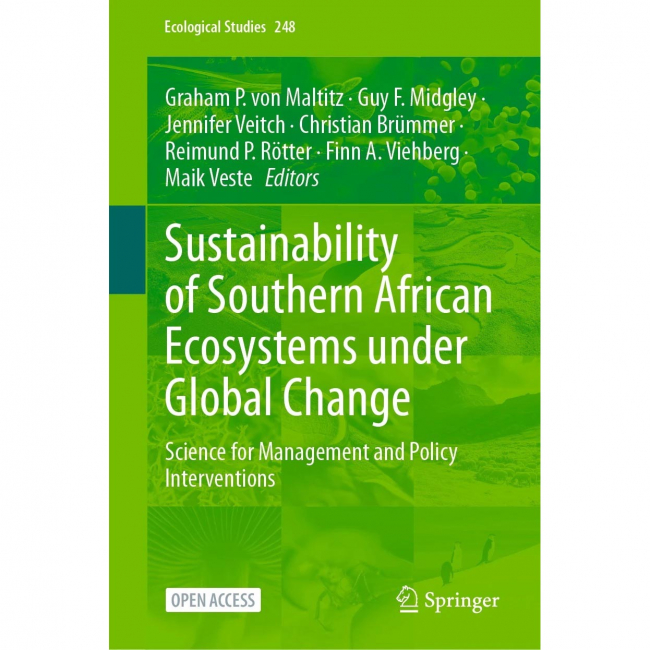06/03/2024 | From 2018 to 2022, the ZMT coordinated the joint project "TRAFFIC", which was funded by the Federal Ministry of Education and Research (BMBF) with around 1.6 million euros. Scientists from research institutions in Germany and southern Africa investigated the consequences of global environmental change on the upwelling sysstem of the Benguela Current - one of the world's most productive marine ecosystems - and on coastal fisheries in Namibia and South Africa. The TRAFFIC project was part of SPACES (Science Partnerships for the Assessment of Complex Earth System Processes), a bilateral programme for cooperation in marine research with southern Africa.
An anthology with a synthesis of the SPACES research programme has now been published with the participation of ZMT scientists. The book publication deals with the scientific, social and economic issues related to the effects of climate change on ecosystems in southern Africa and was written by numerous scientists from Africa and Germany. Mention is made not only of the research in the TRAFFIC project, but also in the previous GENUS and BENEFIT projects in which the ZMT was involved.
About the book
Ecosystems in southern Africa are threatened by numerous global change forces, with climate change being a major threat to the region. Many climate change impacts and environmental-based mitigation and adaptation options remain poorly researched in this globally important biodiversity hotspot. This book is a collection of chapters covering research undertaken in southern Africa by the German Federal Ministry of Education and Research’s (BMBF) SPACES and SPACES II programs.
SPACES II covered a wide range of global change-linked environmental issues ranging in scope from the impacts of ocean currents on global climate systems through to understanding how small-scale farmers may best adapt to the impacts of climate change. All the research has identified policy implications, and the book strives for a balance between presenting the detailed science underpinning the conclusions as well as providing clear and simple policy messages. To achieve this, many chapters in the book contextualize the issues through the provision of a mini-review and combine this with the latest science emulating out of the SPACES II program of research. The book therefore consolidated both past and the most current research findings in a way that will be of benefit to both academia and policy makers.
To the publication





